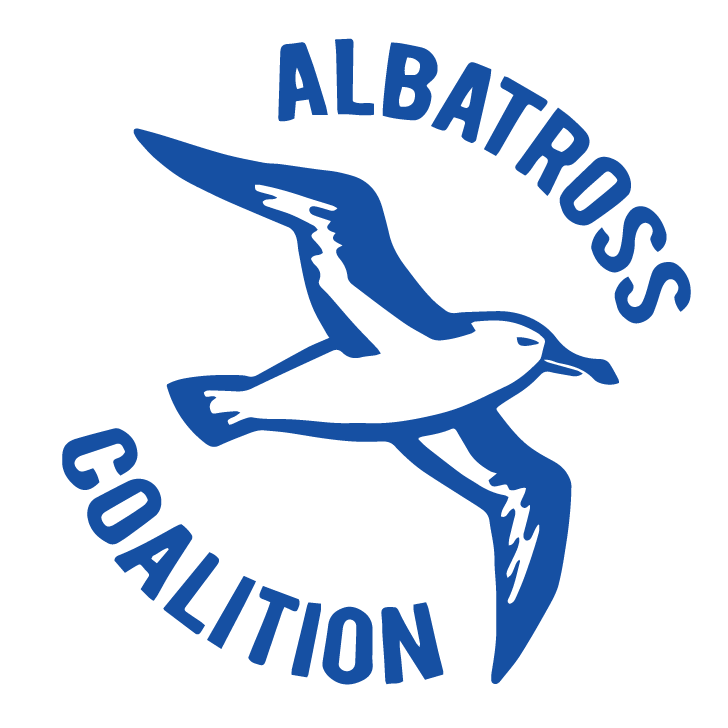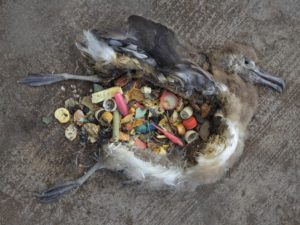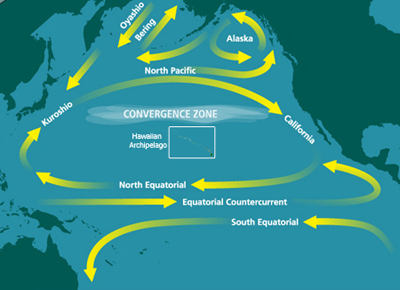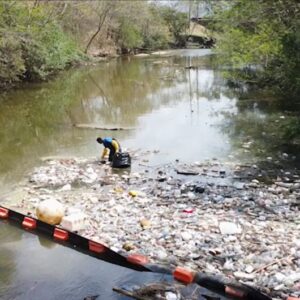Every 90 seconds, another albatross chick dies with a belly full of plastic. Midway Atoll is where our bottle caps eclipse their lives.
The new disease caused by our plastics. Scientists just named the stomach scarring that’s killing our seabirds worldwide.
An albatross sees it as a buffet. With six times more plastic than plankton, they think it smells like dinner.
170 countries couldn’t agree. But your choices matter today. Albatrosses can’t wait until 2026.
Recent
UN Talks Stalled: Albatrosses Can’t Wait Until 2026
170 countries couldn’t agree. The fifth round of United Nations negotiations to create a global plastic pollution treaty ended in disappointment in Busan, South Korea in December 2024, with no agreement reached after two years of talks. The summit brought together over 3,300 participants from more than 170 nations, all working toward what would have…
Pacific Gyre: An Albatross Sees It as a Buffet
With six times more plastic than plankton, they think it smells like dinner. The Great Pacific Garbage Patch has become a deadly illusion for seabirds whose survival depends on their ability to find food in the vast ocean. The North Pacific Subtropical Gyre covers an area larger than Texas, swirling in a slow-motion whirlpool that…
Plasticosis: The New Disease Caused by Our Plastics
Scientists just named the stomach scarring that’s killing our seabirds worldwide. The disease is called plasticosis, and it represents a milestone we never wanted to reach in the plastic pollution crisis. Researchers studying Flesh-footed Shearwaters on Lord Howe Island, a UNESCO World Heritage site 360 miles off the coast of Australia, discovered something alarming. These…
Midway Atoll: Where Our Ocean Choices Meet Ancient Wings
Every 90 seconds, another albatross chick dies with a belly full of plastic. This isn’t hyperbole—it’s the devastating reality playing out on Midway Atoll, a remote Pacific island over 2,000 miles from the nearest mainland. Midway Atoll is where our bottle caps eclipse their lives. Laysan albatrosses have been soaring these Pacific waters for millions…
Resolution to Embrace and Achieve Zero Waste
PDF Version WHEREAS, the first Earth Day was over 50 years ago. Recycling, its natural industrial child, was envisioned to complete the resource circle, save the wilderness, generate jobs, and build the back end of the Gross National Product (GNP) all at once; WHEREAS, the Earth calls us each and all to move swiftly towards…
SB 54/AB 1080 Passed Appropriations
SB 54/AB 1080 have passed the Senate/Assembly appropriations committee!! Urge your representatives to Vote #YesonSB54 #YesonAB1080 Click here to find out who they are More legislation information
AB 619 Success!
PRESS RELEASE For Immediate Release July 15, 2019 Jen Kwart, jennifer.kwart@asm.ca.gov, 415.557.3013 Bill to Help Reduce Landfill Waste at Festivals Signed by Governor Law will allow reusable containers and food ware to be used at temporary events, concerts, fairs, and restaurants Sacramento, CA—A bill authored by Assemblymember David Chiu (D-San Francisco) to allow the use of reusable…
Richard Anthony Zero Waste Pioneer Continues to Work on Global and Local Issues
Richard is an early zero waste pioneer having started at Cal State University Long Beach – Recycling Center, a model program and training ground for California Recycling activists. He went on to co-found the California Resource Recovery Association (CRRA) and became its first president in 1975. Richard also co-founded the National Recycling Coalition (NRC), Zero…
UN Decides to Control Global Plastic Waste Dumping
by Matt Franklin | May 10, 2019 | Press Release | Major Plastic Waste Producers Must Get Consent Before Exporting their Toxic Trash to Global South Also available in Bahasa Indonesia: PBB Memutuskan untuk Mengontrol Pembuangan Sampah Plastik Global FOR IMMEDIATE RELEASE MAY 10, 2019 Geneva, Switzerland — Today, 187 countries took a major step forward in curbing the plastic waste crisis by…
Malaysia drowning in plastic
For years, China accepted enormous amounts of plastic waste from wealthy countries — but in 2018 it imposed a ban. Now other Southeast Asian countries like Malaysia are being flooded with plastic waste. Source: CNN





